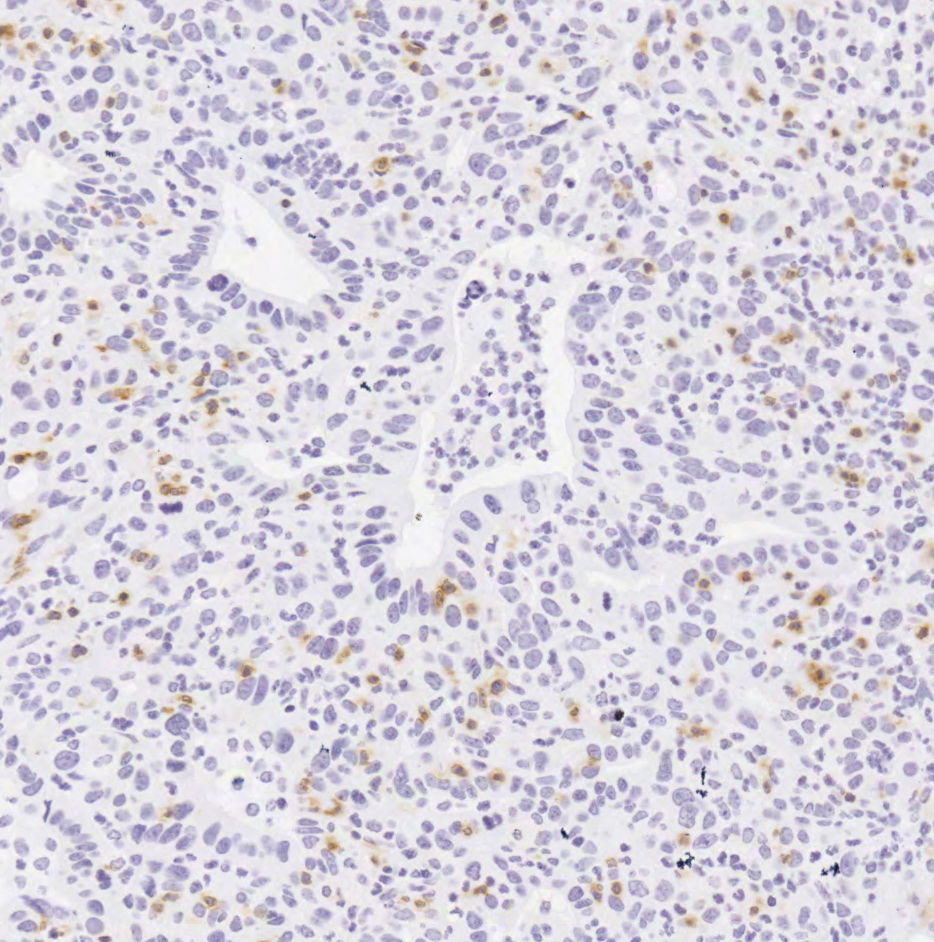
A University of North Carolina Lineberger Comprehensive Cancer Center study may provide insights into how to overcome barriers to using immune-based treatments for pancreatic cancer, the third most deadly cancer in the United States.
In the journal Cancer Immunology Research, scientists revealed that a molecule called interleukin-35 plays a role in suppressing cancer-fighting immune cells in pancreatic cancer. They also reported that their preclinical study showed that knocking out IL35 worked well alongside drugs that unleash the immune system against cancer, helping to shrink tumors.
“Immunotherapies have been very effective at reducing the tumor burden in cancers such as melanoma, but this type of treatment hasn’t worked right off the bat in pancreatic cancer,” said UNC Lineberger’s Yuliya Pylayeva-Gupta, PhD, assistant professor in the UNC School of Medicine Department of Genetics. “That’s because in pancreatic cancer, the immune cells that are present in the tumor are not the ones that respond to immunotherapy. We now better understand how these cells are suppressing the anti-tumor response.”

Pancreatic cancer is one of the deadliest cancers in the United States, with just 8.5 percent of patients living five years following diagnosis. Pancreatic cancer is often diagnosed at late stages, which contributes to poor outcomes, and many cancers are not eligible for surgery because they spread to surrounding organs, or encapsulate vital blood vessels.
“We need some sort of agent that can shrink the tumors maybe to the point where we can take them out during surgery, or shrink them and obliterate them all together,” she said.
Immune-based treatments known as checkpoint inhibitors have been effective in treating some cancers, including advanced melanoma. While scientists have discovered there are immune cells often within pancreatic cancer tumors, responses to immune-based treatments have been ineffective in pancreatic ductal adenocarcinoma, researchers report.
“The cells present are the ones that are what we call ‘immunosuppressive cells,’” Pylayeva-Gupta said. “This cell type creates a barrier that does not allow T lymphocytes to come in.”
Researchers evaluated what immunosuppressive cells are doing to create the barrier. They found cytokine IL35 suppresses the immune response that could fight the cancers. Laboratory models lacking IL35 had reduced tumor growth, and they showed improved response by cancer-killing cells. The researchers discovered a synergism when they added in checkpoint inhibitors to their models lacking IL35.
“We found that if we eliminated cytokine IL35 from the system, it would work to reduce tumor growth,” she said. “Take away IL35, and you also see the increases in T cell lymphocytes. That’s what you really want for immunotherapy.”
In addition to Pylayeva-Gupta, other authors included Bhalchandra Mirlekar, Daniel Michaud, Ryan Searcy and Kevin Greene.
The study was supported by the American Association for Cancer Research-PanCAN Pathway to Leadership Grant, the University Cancer Research Fund, the V Foundation for Cancer Research, and a WUSTL SPORE Career Enhancement Award from the National Cancer Institute.
